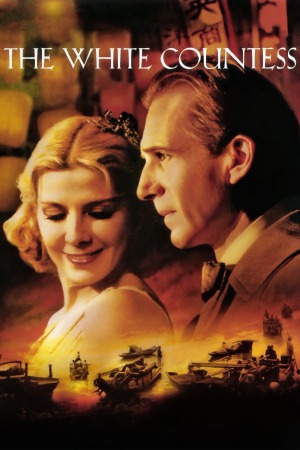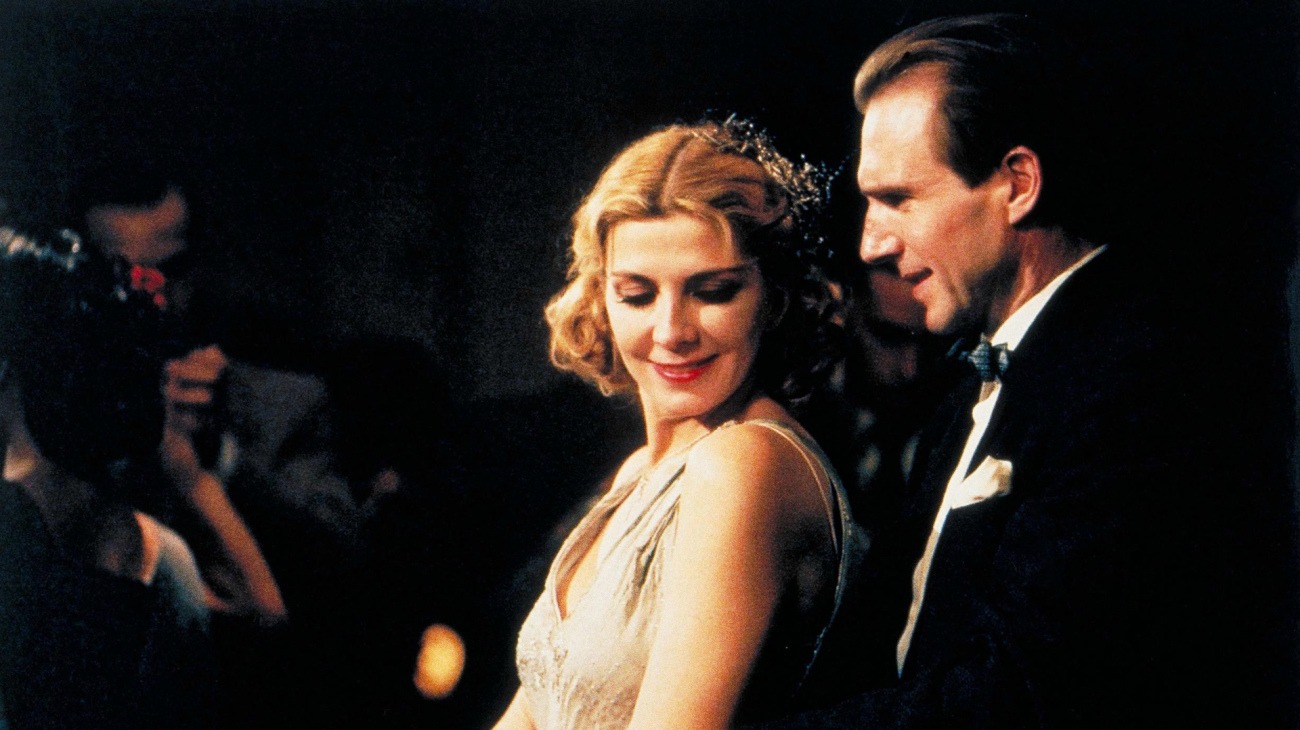
Shanghai surprise
I'm only a little bit ashamed to admit that my primary motivation in seeing the final Merchant Ivory production, The White Countess, was the knowledge that producer Ismail Merchant is dead. I've seen only one of his previous films with James Ivory, and I liked it well enough, but I've always been a bit scared of their work's reptutation for upper-middle class artsy sensibility, assuming it's the cinematic equivalent of Thomas Kinkade.
The White Countess hardly meets that low expectation, although it's a rather sleepy and dry affair, especially the first half. Ralph Fiennes plays a blind American diplomat living in Shanghai in 1936, looking to open a night club. Natasha Richardson plays a Russian countess living with her noble family in exile. Their lives intersect.
That plot synopsis suggests what might be the film's defining quality, as well as its most annoying: until Japan invades Shanghai in August 1937, some 90 minutes into the film, nothing much happens. It's just an atmospheric idyll in a midly exotic city. Which could have worked (and has worked often, although not in any recent American film I can name) if only the characters we spent that time with were interesting. But they're not: as played by Fiennes and Richardson, the two people are less personalities and more collections of quirks and tics - especially in Fiennes' case, as he seems focused more on selling "blind" and "American" at the expense of actually, y'know, acting.
The script isn't half bad (I do blame the actors for rendering the characters uninteresting, I should make that clear), but it sprawls a bit too much; we needn't spend so much time with the Russian family (although it puts Lynn and Vanessa Redgrave on camera together for the first time), and we needn't spend any time with the Jewish family downstairs at all (in a subplot that, I believe, is meant to foreshadow the Holocaust, and does so terribly).
Once the third act kicks in, the movie picks up a great deal, Fiennes loosens up enough to seem something other than uncomfortable, and I actually enjoyed myself. I'd be tempted to call it "too little too late," but the opening isn't bad, just unengaging.
Of course, it is a Merchant Ivory film, and the draw really shouldn't be the plot, but the opulence. And it succeeds at that: Shanghai looks great, and the White Countess joins Rick's Café Americain as one of those movie clubs you desperately wish really existed. The cinematography is also pretty damn amazing (especially the exteriors, which are so wonderfully dusty! It's like a movie full of that great cigarette haze you find in films noirs), and I am embarrassed to admit that I didn't know until I saw his name in the credits that super-cinematographer Chris Doyle shot it. The score by Richard Robbins (who appears to work exclusively with James Ivory) was surprisingly good, melding Western style with Asian motifs in a challenging and appropriate way, as opposed to the cloying Orientalism of something like John Williams' Memoirs of a Geisha score.
Still, "opulent" is not the same as "entertaining," and the film took far too long to get going. I'm not sure that I'm giving up on Merchant Ivory, but I'm certainly cancelling this weekend's Shakespeare Wallah/A Room with a View double feature.
6/10
The White Countess hardly meets that low expectation, although it's a rather sleepy and dry affair, especially the first half. Ralph Fiennes plays a blind American diplomat living in Shanghai in 1936, looking to open a night club. Natasha Richardson plays a Russian countess living with her noble family in exile. Their lives intersect.
That plot synopsis suggests what might be the film's defining quality, as well as its most annoying: until Japan invades Shanghai in August 1937, some 90 minutes into the film, nothing much happens. It's just an atmospheric idyll in a midly exotic city. Which could have worked (and has worked often, although not in any recent American film I can name) if only the characters we spent that time with were interesting. But they're not: as played by Fiennes and Richardson, the two people are less personalities and more collections of quirks and tics - especially in Fiennes' case, as he seems focused more on selling "blind" and "American" at the expense of actually, y'know, acting.
The script isn't half bad (I do blame the actors for rendering the characters uninteresting, I should make that clear), but it sprawls a bit too much; we needn't spend so much time with the Russian family (although it puts Lynn and Vanessa Redgrave on camera together for the first time), and we needn't spend any time with the Jewish family downstairs at all (in a subplot that, I believe, is meant to foreshadow the Holocaust, and does so terribly).
Once the third act kicks in, the movie picks up a great deal, Fiennes loosens up enough to seem something other than uncomfortable, and I actually enjoyed myself. I'd be tempted to call it "too little too late," but the opening isn't bad, just unengaging.
Of course, it is a Merchant Ivory film, and the draw really shouldn't be the plot, but the opulence. And it succeeds at that: Shanghai looks great, and the White Countess joins Rick's Café Americain as one of those movie clubs you desperately wish really existed. The cinematography is also pretty damn amazing (especially the exteriors, which are so wonderfully dusty! It's like a movie full of that great cigarette haze you find in films noirs), and I am embarrassed to admit that I didn't know until I saw his name in the credits that super-cinematographer Chris Doyle shot it. The score by Richard Robbins (who appears to work exclusively with James Ivory) was surprisingly good, melding Western style with Asian motifs in a challenging and appropriate way, as opposed to the cloying Orientalism of something like John Williams' Memoirs of a Geisha score.
Still, "opulent" is not the same as "entertaining," and the film took far too long to get going. I'm not sure that I'm giving up on Merchant Ivory, but I'm certainly cancelling this weekend's Shakespeare Wallah/A Room with a View double feature.
6/10






